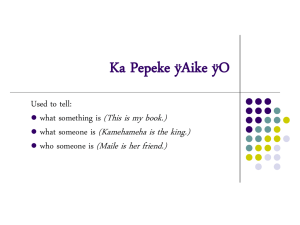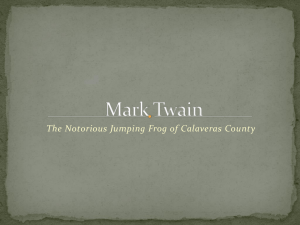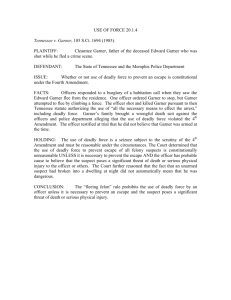Using Humor to Engage Student Learning
advertisement
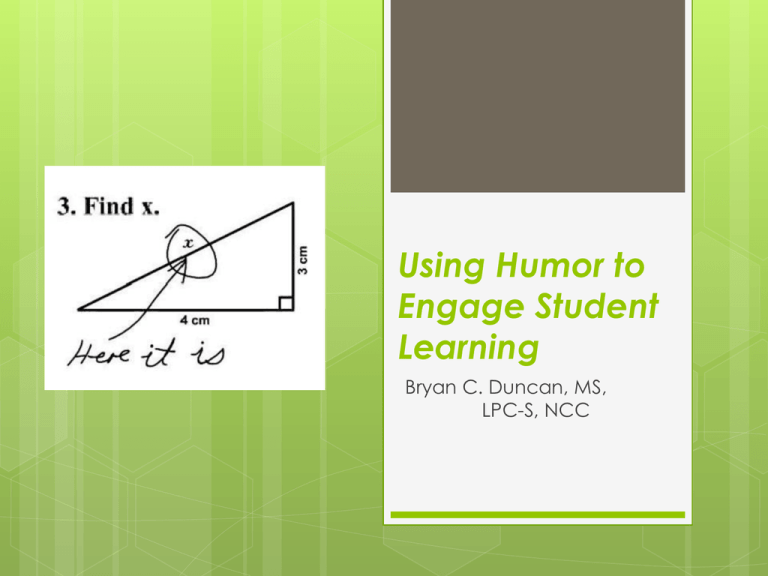
Using Humor to Engage Student Learning Bryan C. Duncan, MS, LPC-S, NCC A Brief Dedication Classes Louis XVI Words and Dresses Why in which I learned more this topic is important to me Teacher and Student Roles I do not want to teach a class, I would not want to sit through as a student. The Professor Stereotype Knowledgeable, quiet BUT dull and dry The perception: If the students laugh or have fun it means they are not taking the class or subject seriously Stern instruction is required for a healthy student-teacher relationship Seriousness is required to present a professional and mature persona Humor is a distraction and reduces classroom efficiency. (Lei, Cohen, & Russler, 2010) Where did this come from? See Kuhrik, Kuhrik, and Berry (1997) Benefits of Humor Stimulates the cerebral cortex improving both physical and mental health (Lei et al., 2010). Those who utilize humor are more positively rated by both students and peers (Garner, 2006) Example: Stats Ratings Production of endorphins and natural painkillers (Lei et al., 2010) Reduces anxiety and stress (Garner, 2006) Example to come… Improves student Morale (Lei et al., 2010) Creates a positive social and emotional environment (Garner, 2006) AND MUCH MORE From Lei et al. (2010) How Humor Helps Learning Laughter means your students are awake! Laughter means they are listening (Lei et al., 2010) Humorous teaching increases retention (Garner, 2006) Overall students prefer humorous teaching (Lei et al., 2010) Exceptions Humor increases student recall (Garner, 2006) How can I use humor in my class? Some examples Stats Diffusing the introduction of standard deviation formulas or the ANOVA (stress reducing tactic) Pointing out flaws or missing information in a text book or article Creating funny or ironic illustrations and examples Comics/funny (a word of warning) To enhance the relationship between you and your students Being human and being willing to laugh at yourself What classes benefit from humor? College (Garner, 2006) Online Classes (James, 2004) Business (Benjelloun, 2009) Preschool (Gartrell, 2006) Nursing (Englert, 2010) (Kuhrik et al., 1997) Those with learning differences (SemrudClikeman, & Glass, 2008) Math (Warwick, 2009) Language Arts (Minchew, & Hopper, 2008) ESL (Bell, 2009) Selected References Garner, R L HUMOR IN PEDAGOGY: HOW HA-HA CAN LEAD TO AHA! College Teaching; Winter 2006; 54, 1 Lei, Simon A;Cohen, Jillian L;Russler, Kristen M Humor on Learning in the College Classroom: Evaluating Benefits and Drawbacks From Instructors‘ Journal of Instructional Psychology; Dec 2010; 37, 4; Thank You for Your Time and Attention! Any Questions/Discussion?
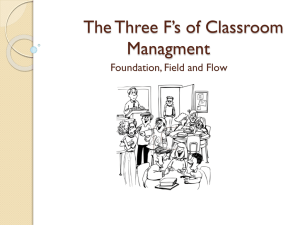



![Young hero of '08 quake stands trial Lei Chunian [Photo/IC] Lei](http://s3.studylib.net/store/data/008464084_1-b04301ab441cd58c7d45ef8d47205ad1-300x300.png)

